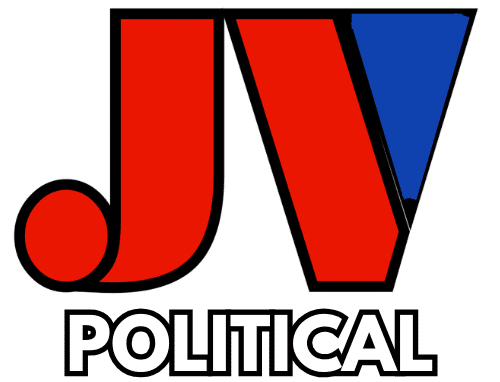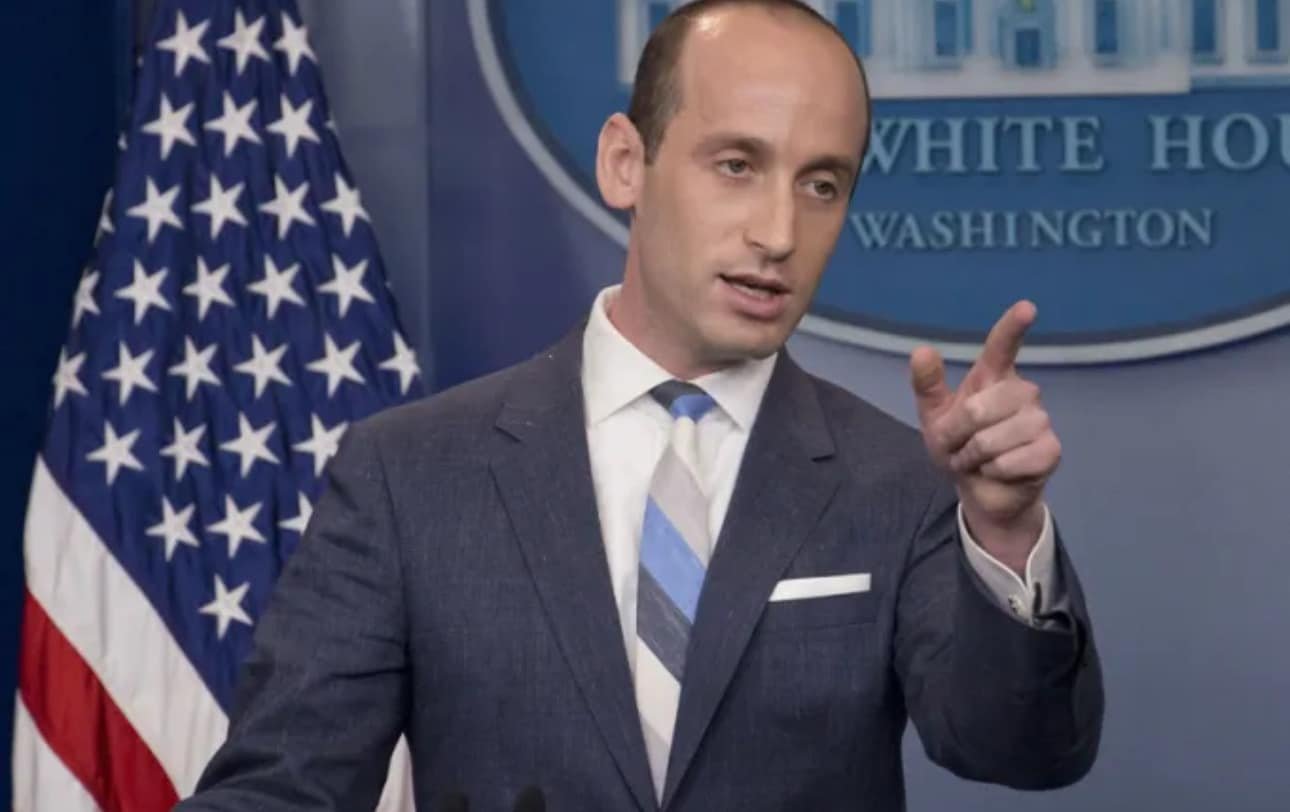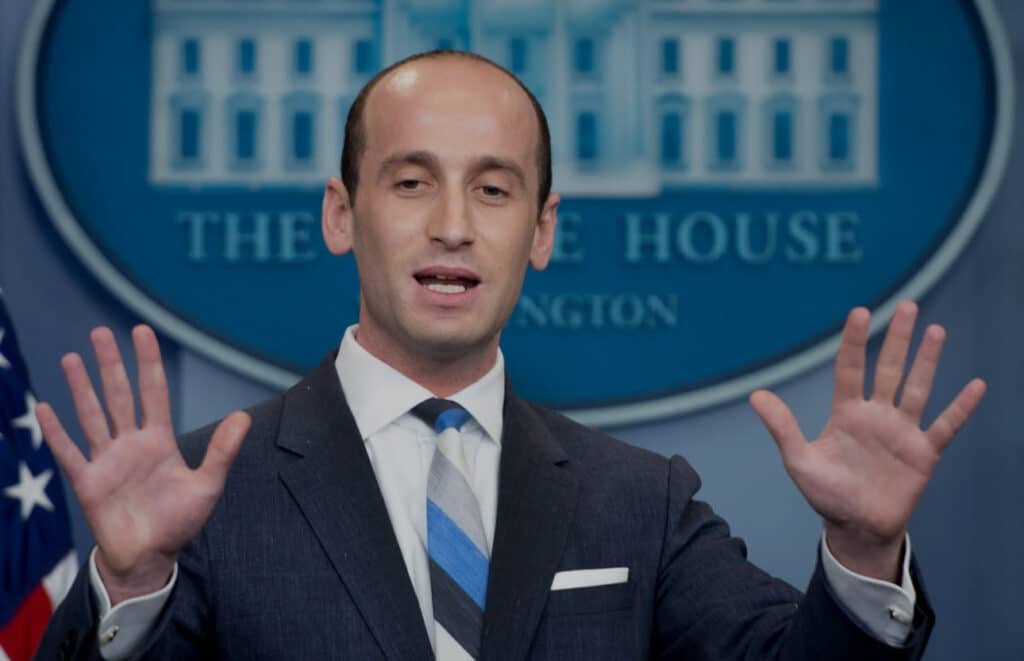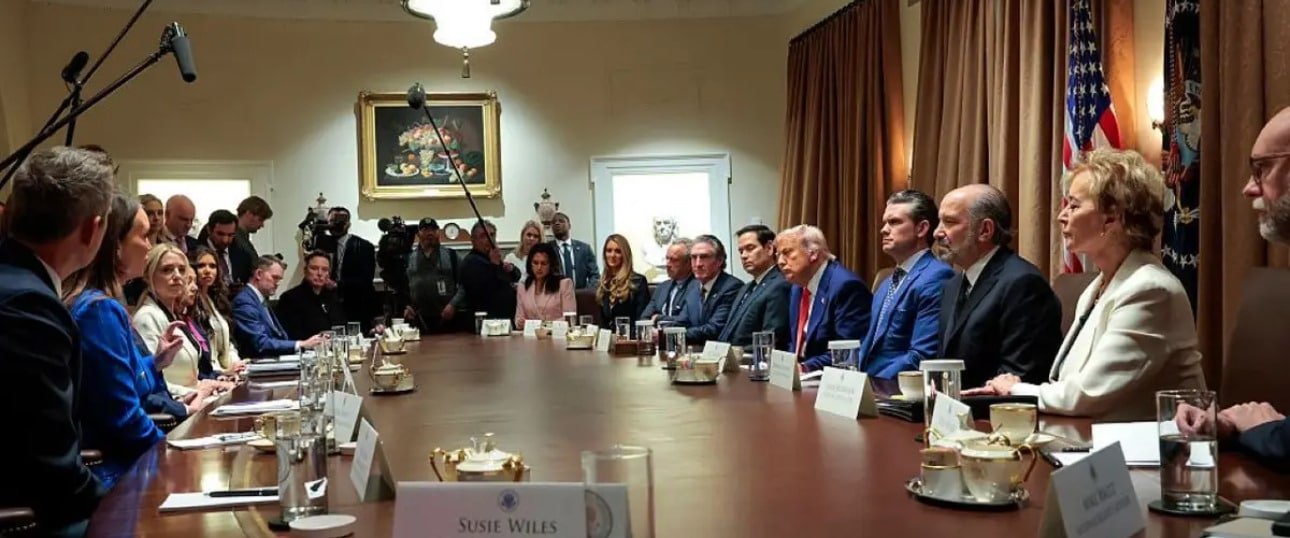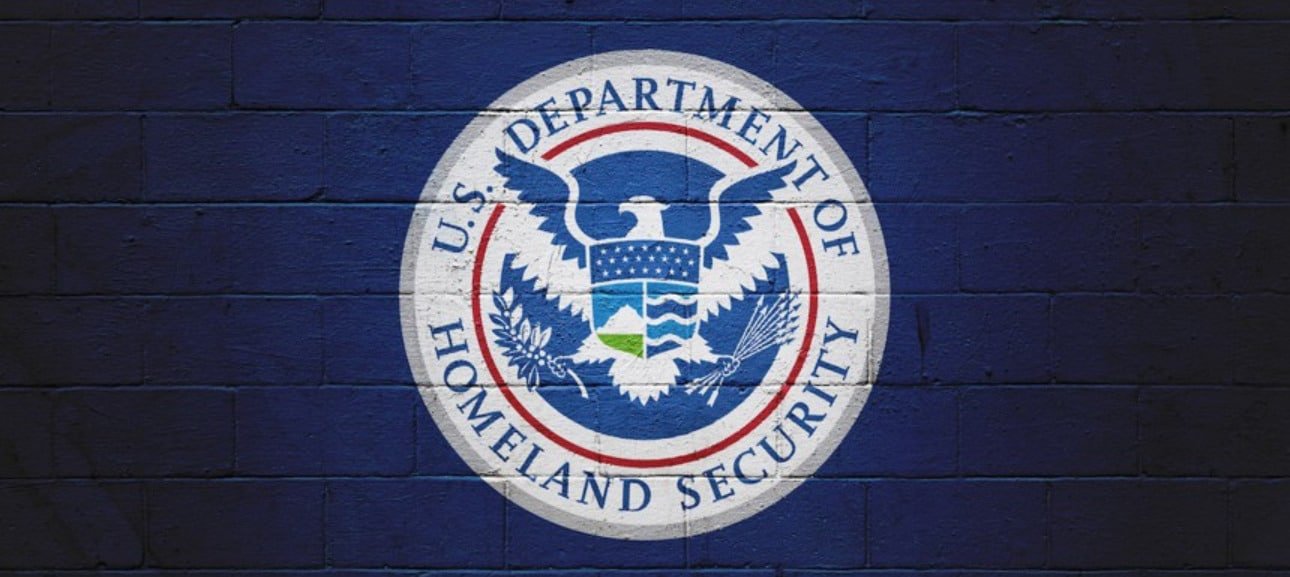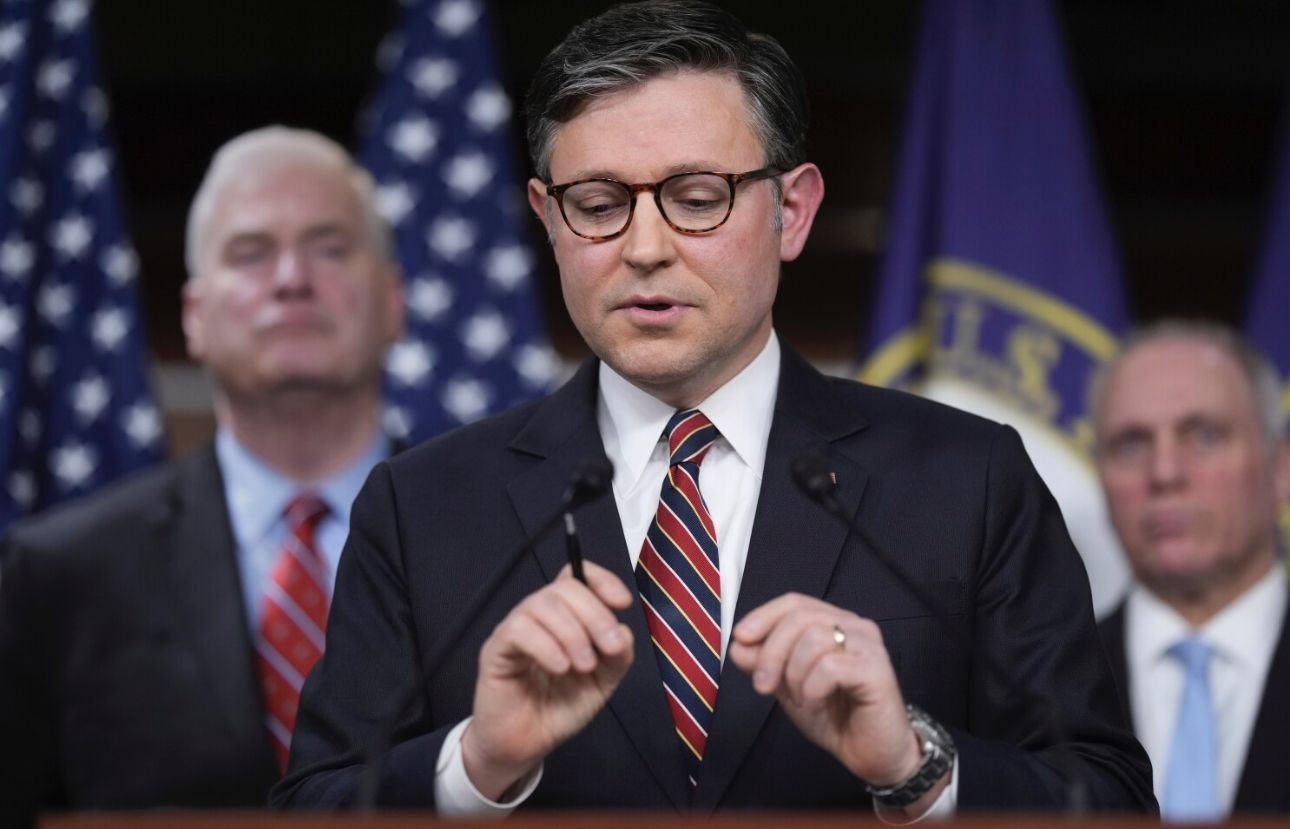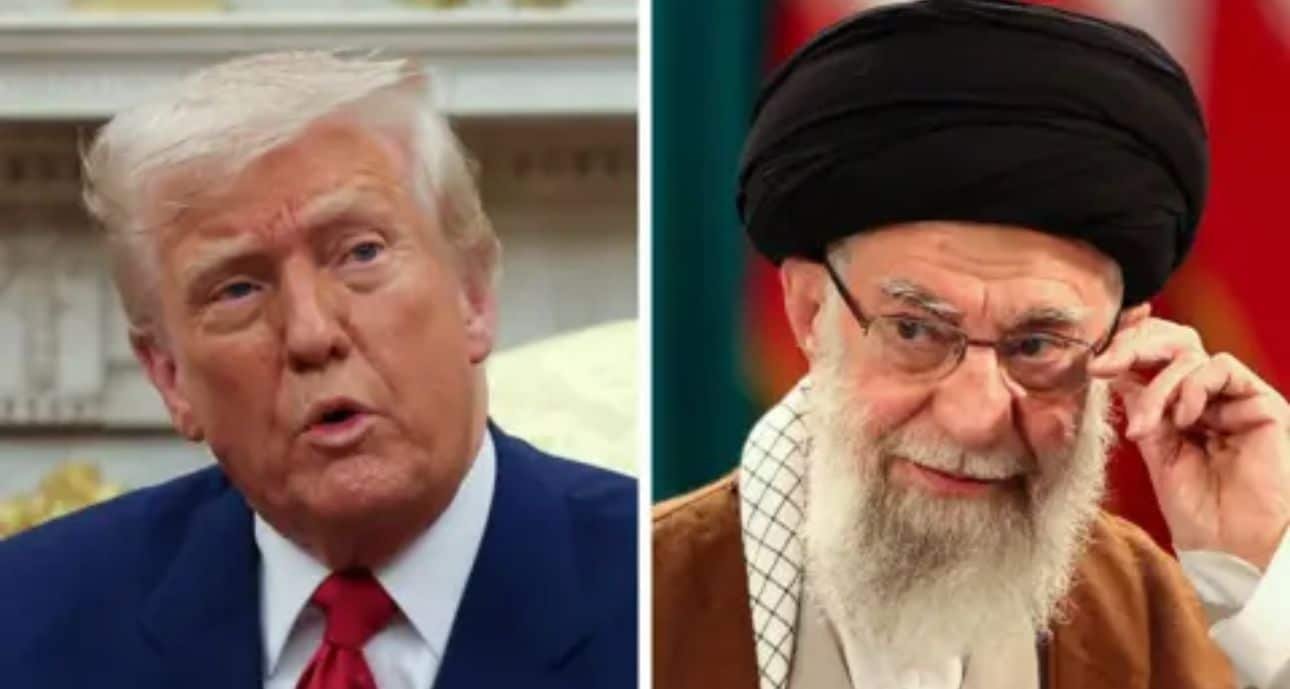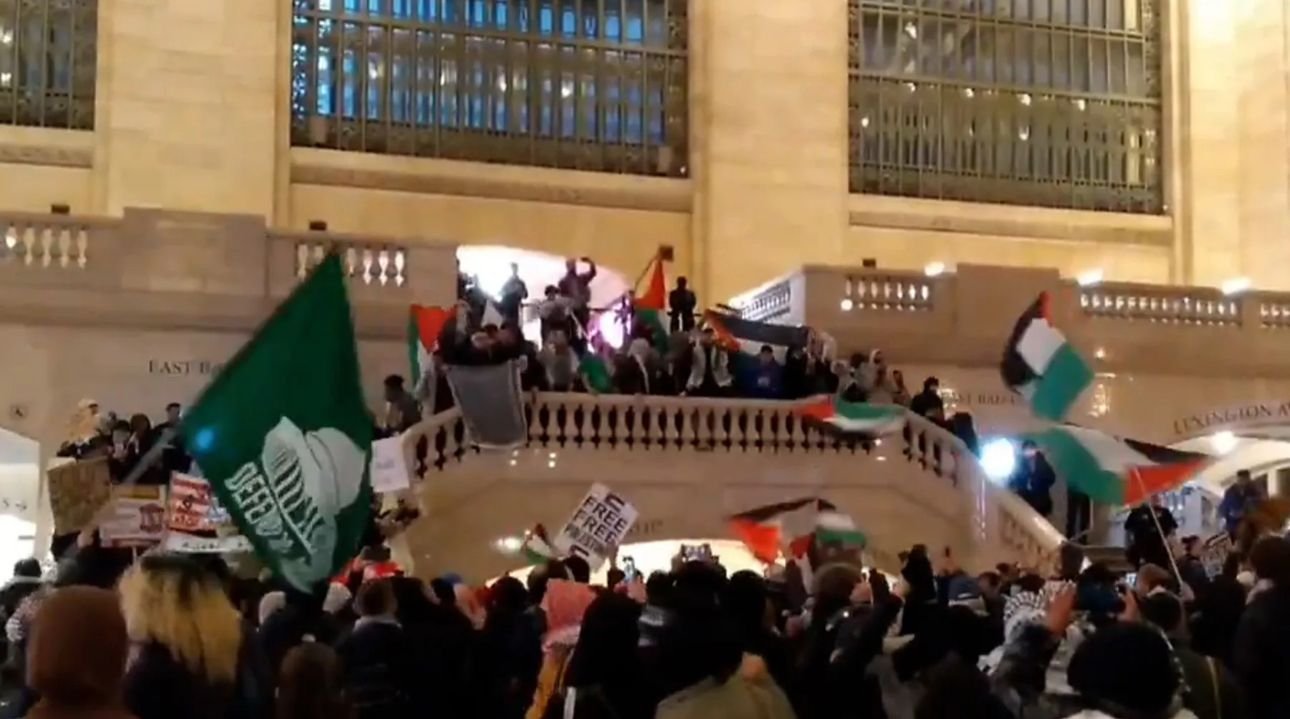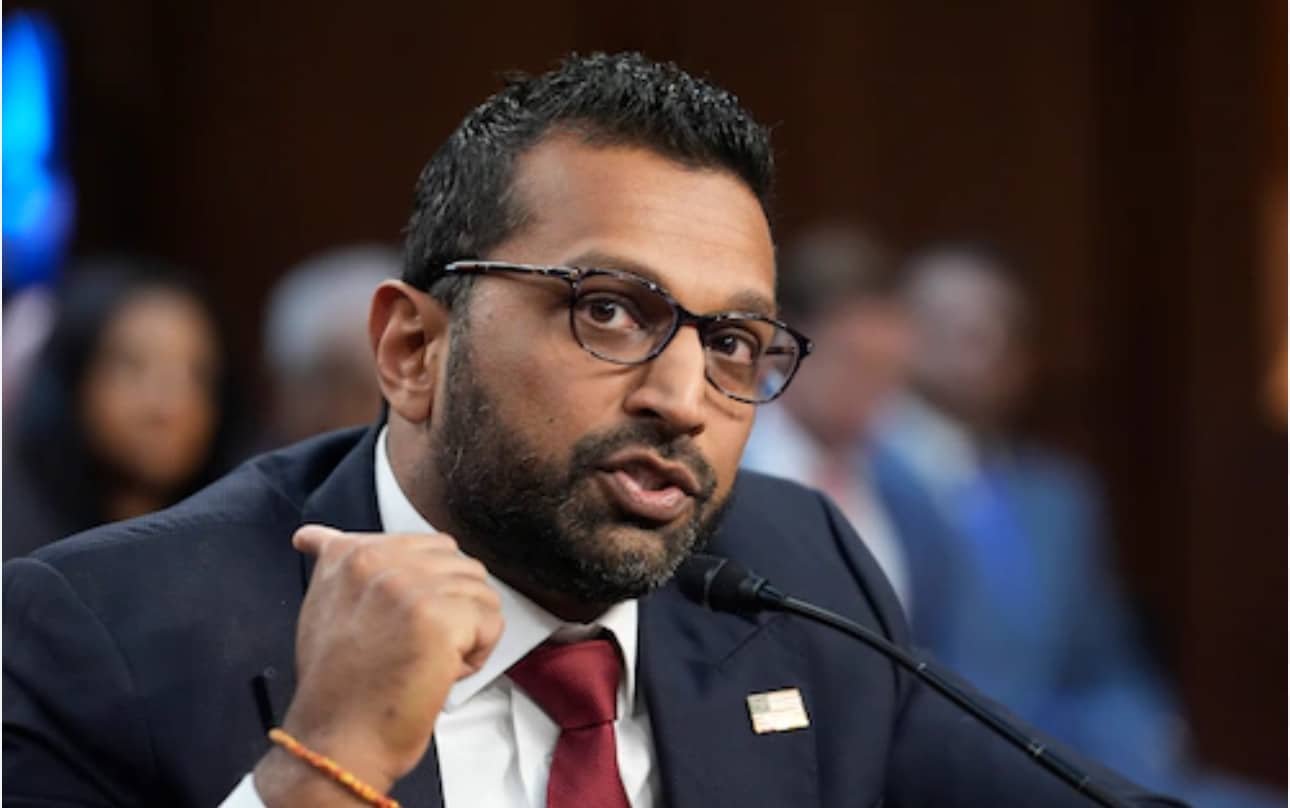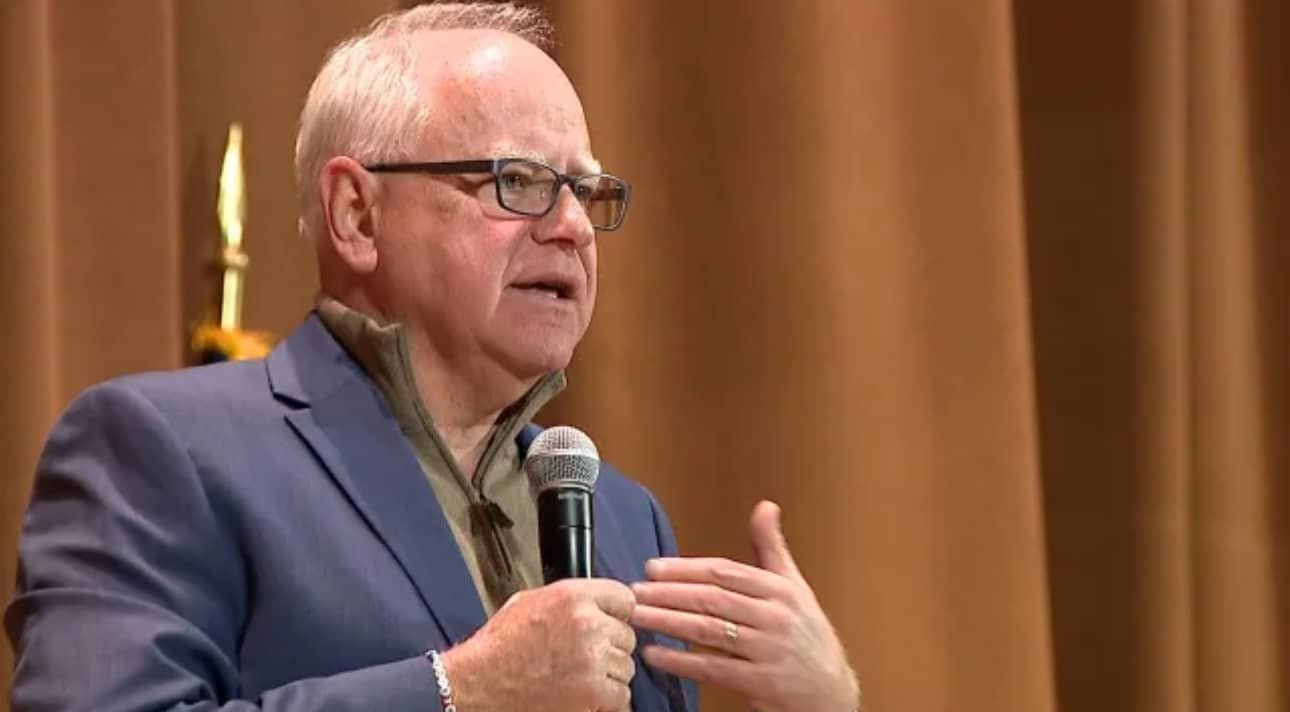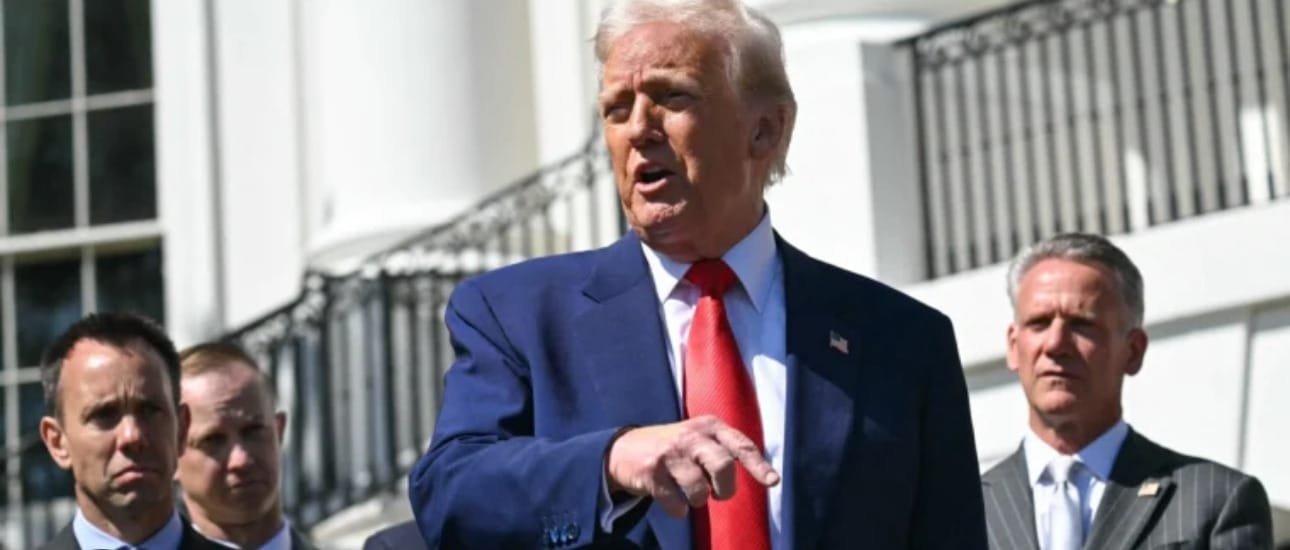BREAKING: Judges Usurping Presidential Powers: The ‘Tyranny’ Explained 3/20/25
Stephen Miller, a senior White House policy advisor, asserted on Newsmax Wednesday that district court judges have exceeded their legal boundaries which infringe upon presidential powers and constitute “tyranny.”
Miller expressed gratitude towards Schmitt for his eloquent analysis of recent issues during “Rob Schmitt Tonight” while emphasizing the need to control district court judges to protect American democracy.
Miller argued that left-wing activists strategically place ideologically motivated judges to thwart the administration’s policies.
Consider the viewpoint of both the Marxist left and the communist left to understand their approach. They will locate an extremist communist who despises our civilization and way of life. He explained that they place these judges in obscure district courts throughout the nation.
Donald Trump assumed power and the district court judge began to operate with presidential authority according to his statement. A district court judge operates in a San Francisco neighborhood or a Manhattan neighborhood or a Los Angeles neighborhood. Their rulings have led them to declare that they are now the president of the United States.
Summary
- Judges usurping presidential powers is seen as tyranny that harms democracy.
- Judicial overreach threatens the separation of powers, key to American governance.
- Recent rulings show political motivations in judicial actions.
- The principles of popular sovereignty urge us to engage to prevent tyranny.
- History shows that overreach has been met with strong public opposition.
Understanding Judicial Overreach
Judicial overreach happens when courts go beyond what the Constitution allows. This imbalance messes with the balance of power. It’s designed to keep each branch of government in check.
Looking back, we see examples that show the risks of judges taking on roles meant for others. This includes the legislative and executive branches.
Definition and Context
Judicial overreach goes against American values by letting judges make policies they shouldn’t. It messes with the system of government that keeps power balanced. The Constitution’s framers wanted each branch to have its own role.
This way, they could protect our freedoms and rights. Lately, we’ve seen more federal judges issuing universal injunctions. These can stop presidential actions across the country.
This trend highlights the need to understand judicial overreach today. It shows how important it is to keep the balance of power.
Historical Examples of Judicial Overreach
U.S. history is full of examples of judges overstepping their bounds. The case of *Obergefell v. Hodges* is a recent example. The Supreme Court made a big decision on marriage rights.
These examples warn us about the dangers of unchecked power. They remind us of the concerns of America’s founders. They fought against too much power in one place.
Today, judges are using universal injunctions to block actions of past administrations. This shows how the judiciary is changing. It’s making policies without the input of lawmakers. This makes us think about how far judges can go. It’s about respecting the balance of power that protects our freedom.
Judicial Activism and Its Implications
Judicial activism is a big challenge in our legal system. It happens when judges make their own law, ignoring what the legislature says. This can deeply affect how we govern and our democracy.
Explaining Judicial Activism
There’s a growing concern about federal judges’ power. Over 700 federal judges can block presidential actions nationwide. In February 2025, district court judges issued 15 such blocks, more than President Biden faced in his first three years.
The first Trump administration faced an incredible 64 blocks. This shows how judges can interfere with the president’s work.
The Impact on the Separation of Powers
Judicial decisions can harm the balance of power. Most blocks against the first Trump administration came from Democrat-nominated judges. This has sparked worries about judges overstepping their bounds and politics in the judiciary.
There’s a push for the Supreme Court to rule on these injunctions. Yet, the court hasn’t made a final decision. Congress is considering laws to limit district courts’ power, aiming for a fairer balance of power.
| Administration | Number of Universal Injunctions | Judges’ Party Affiliations |
|---|---|---|
| Trump | 64 | 92% by Democrat-nominated judges |
| Biden (2025) | 15 | Data not yet fully available |
The Trump administration argued that one judge’s power could cost billions. This has many worried about our democracy’s integrity. It’s vital to understand judicial activism’s impact on our governance and its core principles.
Judges Usurping Presidential Powers Is ‘Tyranny’
Tyranny in governance is more than just oppressive rule. It’s about breaking the rules of power. When judges take over presidential powers, it changes the balance of authority. This action weakens the executive branch and can silence the people’s voice.
The role of the judiciary today is under scrutiny. It’s moving from just interpreting laws to making policy. This shift is significant.
Historical Context of Tyranny in Governance
History shows how tyranny starts when power checks fail. When judges ignore the law, it’s like old tyrannies. The impeachment of President Trump in 2021 is a recent example.
It happened quickly, without debate. The charge was “inciting an insurrection” from a peaceful speech. This sets a dangerous precedent.
The Role of the Judiciary in the Modern Era
The judiciary’s role today is changing. It’s moving from just interpreting laws to making policy. This is causing concern.
For example, Judge James Boasberg stopped deportation flights of illegal alien gang members. This is a clear overstep. It challenges the idea of limited government. Judge Paul Engelmayer also blocked the Department of Government Efficiency from Treasury Department systems. This affects the country’s finances.
With a national debt of over $36 trillion, these actions are critical. The rise of “Trump derangement syndrome” makes things worse. It adds to the confusion about the judiciary’s role.
| Event | Description | Judicial Involvement |
|---|---|---|
| Impeachment of President Trump (2021) | Fast-tracked impeachment process, accused of incitement. | No hearings or debate; bypassed traditional checks. |
| Deportation Flights Halted | Judicial intervention stopping deportation of illegal gang members. | Significant impact on executive authority. |
| Blocking Treasury Access | Judge restricted auditing capabilities related to government spending. | Undermined oversight on national debt. |
| Political Bias Claims | “Trump derangement syndrome” reflects perceived judicial bias. | Questions the neutrality of judicial actions. |
Legal Precedents and Their Consequences
Our judicial system is built on key cases that show judicial overreach and its effects. Legal precedents shape our legal world and show how judges can upset the balance of power. Each important case sheds light on the fight for control between government branches, leading to big changes.
Key Cases Illustrating Judicial Overreach
Some landmark cases show the harm of judicial overreach. The Obergefell v. Hodges ruling changed marriage rights, showing how judges can change society without laws. Other court decisions have limited the president’s power, making big changes without following the usual rules. These actions move power away from where the Constitution says it should be.
The Ripple Effect on Future Rulings
The effects of these legal precedents go far beyond the first ruling. They change how courts will make decisions and apply justice in the future. As more cases come up, the legal system’s integrity starts to break down.
This breakdown leads to more fights between government branches, upsetting the balance the Constitution sets. The danger is clear: letting judges make up their own rules can harm our system of government and our core values.
Checks and Balances in a Changing Political Landscape
We look at the checks and balances in the American political system. We ask if they stop government branches from getting too powerful. Recent fights show the tension between the courts and the president, worrying about our rights.
The Alien Enemies Act is a key example. It shows how fast legal changes can lead to conflicts between branches.
Evaluating the Effectiveness of Current Controls
Looking at government controls, we find many challenges. The Trump administration’s use of the Alien Enemies Act is a case in point. A judge stopped deportation flights just before they left, causing a big clash.
This fast action makes us wonder if our system is ready to keep balance. The rise in deportation disputes shows we need to watch closely to keep our system strong.
Case Studies of Recent Conflicts Between Branches
Many examples show the fight between government branches. The Justice Department’s move sparked a big debate on presidential and judicial power. Senator Elizabeth Warren spoke out against the president’s actions, showing public concern.
The ACLU’s legal actions show how people can fight against government actions. These stories show the ongoing battle to keep American values alive in our government.
Conclusion
The erosion of constitutional boundaries is a clear form of tyranny. Judges taking over presidential powers disrupts the balance of power our Founding Fathers designed. With nearly 700 federal judges, we see a worrying trend that could overshadow the rule of law.
In February 2025, judicial resistance led to 15 universal injunctions against the Trump administration. This shows a big increase in judicial activism. It’s a concerning trend.
Reflecting on these actions, we see the need for action. The Supreme Court’s refusal to address universal injunctions lets lower courts get bolder. These decisions, often driven by partisan biases, show the need for accountability.
We must work together to keep all branches of government in check. This ensures American democracy stays strong. It’s our duty as citizens to fight for these constitutional safeguards.
We must go back to the founding principles of liberty and justice for all. This will protect our nation from tyranny. Together, we must watch over the rule of law and make sure no branch of government goes too far.
FAQ
What constitutes judicial overreach?
Why do some consider judges usurping presidential powers as ‘tyranny’?
How does judicial activism affect government functions?
What are some historical examples of judicial overreach?
What are the implications of judicial rulings on executive authority?
How does the concept of checks and balances play a role in preventing judicial overreach?
What do we mean by ‘the rule of law’ in relation to judicial authority?
How can citizens advocate for the preservation of constitutional principles?
Source Links
- WASHINGTON TIMES: DAVID BOSSIE: Impeach out-of-control federal judges – Citizens United
- Beyond The Law: What It Means To Weaponize The Government – OpEd
- Injunction Dysfunction or Tyrant Disruption? Trump-Era Judicial Paralysis Explained
- What It Means to Weaponize the Government | Dissident Voice
- What It Means to Weaponize the Government – The Burning Platform
- Turkish police arrest Istanbul mayor a key Erdogan rival as government crackdown escalates
- Bernie Sanders and AOC to headline five resistance rallies in three days
- KOMMONSENTSJANE – Ron DeSantis Proposes Solution to Stop the ‘Sabotaging of President Trump’s Agenda’ by Federal Judges.
- ‘Heckuva stretch’: Skeptical judge questions Trump’s defiance over deportation order
- White House says it didn’t defy court order on deportations as judge calls hearing
- Alexander Hamilton Saw This Coming
- Tyranny. com: Technologies of Unreason
